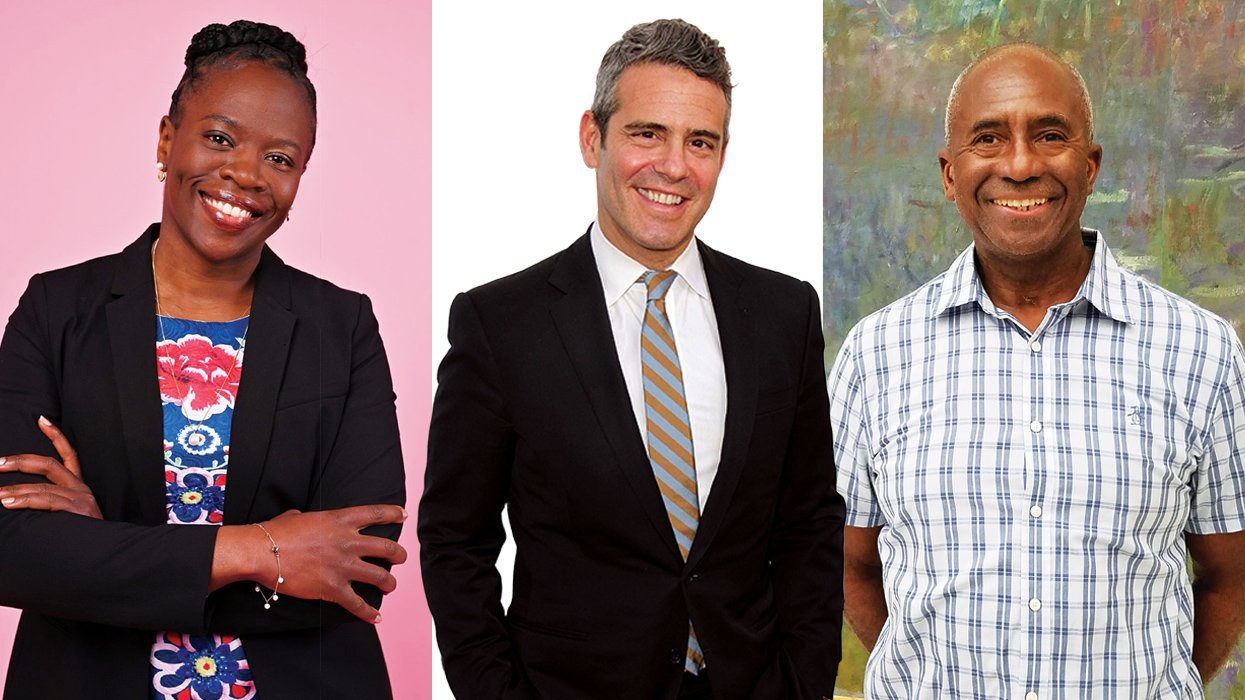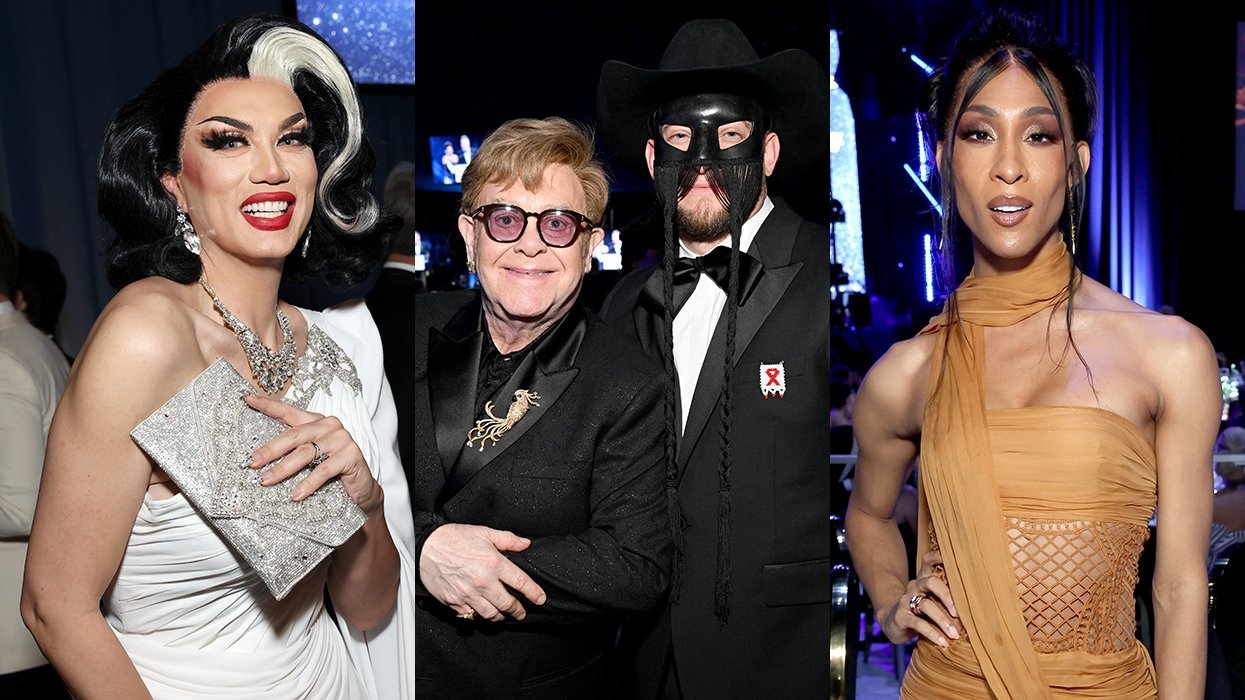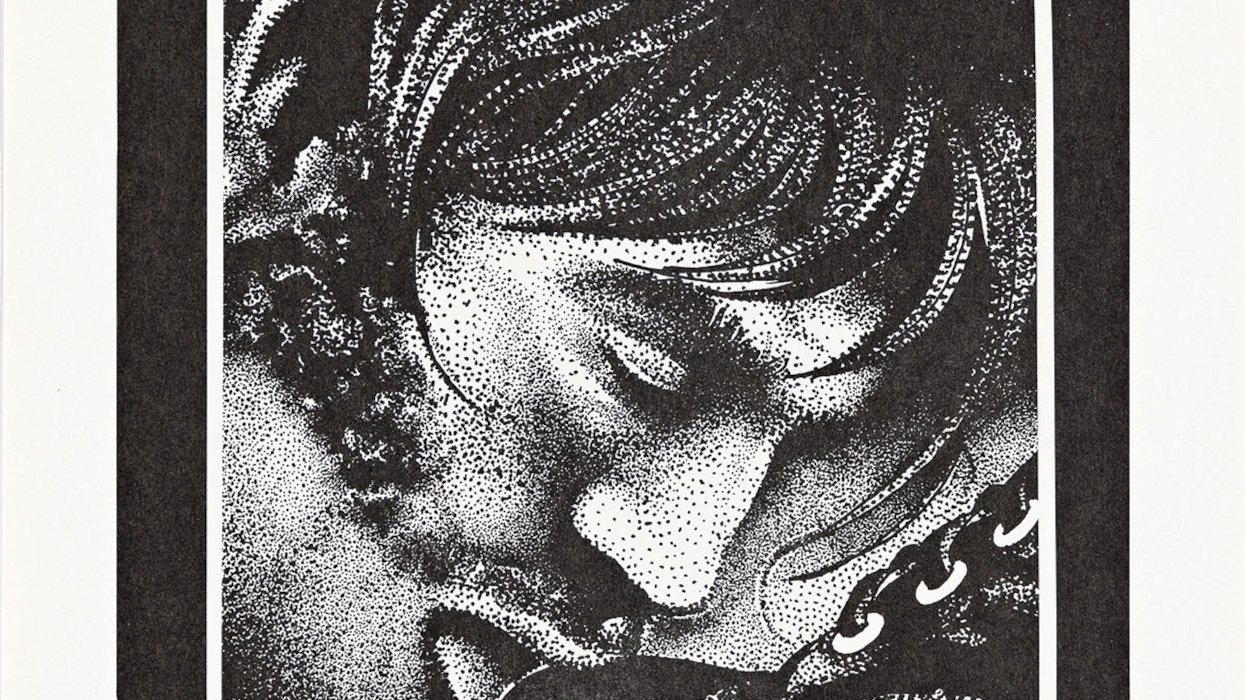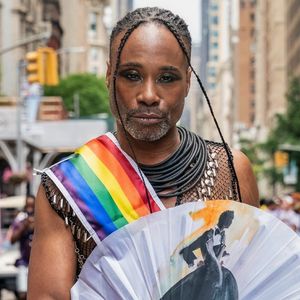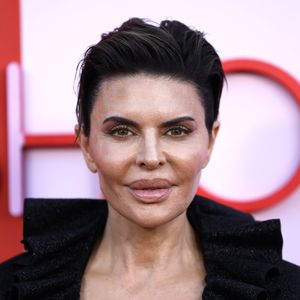
Long before he died, Duane Cramer’s father taped a note to the wall, which read,
“Quond non est in libro, non est in mondo” (“What is not documented does not exist”). Joe J. Cramer was a trailblazer, a black Ph.D. in theoretical accounting who served as an associate dean at Howard University. He also died of AIDS complications in 1986, a shock to Cramer’s entire family.
“Most of the images around the unnamed disease — it was later called the gay plague — were of white gay men,” the younger Cramer recalls. “Our father did not fit the stereotype of the people…shown in the media. Initially we told people that he died of cancer, because of the shame and guilt. Now the world knows that black and brown people were as disproportionately affected and infected by the AIDS virus from the earliest days — in the USA and globally — just as we continue to be today. However, the media chose to focus on the white
gay community."
Cramer, now 50, was affected both by the death of his father — a man he still calls his best friend — and by that tiny note taped to the wall with a phrase that has shaped his life, career, and activism. After stints as an executive at Xerox and a marketing guru, Cramer became a world-renowned photographer whose work has appeared in publications as diverse as
Vibe, The New York Times, and
Harper’s Bazaar. He’s photographed
celebrities, elder statesmen, and even tribal communities in Africa. But it’s the fight against HIV and AIDS that Cramer has documented best, giving voice to HIV-positive people around the globe, including 40 AIDS-affected children in Nakuru, Kenya, who later named a school, the Duane Cramer Academy, for him.
Exactly 10 years after his father’s death, Cramer, then 34, found out he too was HIV-positive. He told his former partner and his sisters, but he waited a year to tell his mother, Beedie Brazos-Cramer, a conversation that’s documented in the short film Tell Me, directed by Veronica Deliz, a part of the HIV Story Project.
“It was clear the only way we’re going to stop this disease is to talk about it, and the only way I was going to be able to fully interact with my family was to be honest,” he says, “so that they could continue to support and love me as they always had done."
Brazos-Cramer says she wishes her son had shared his status with her earlier, so she could support him. “By not sharing, [he] missed out,” she says.
Cramer says he was concerned about his mother’s reaction: “She lost her former husband to AIDS. I was fearful that she would be afraid of losing me, so I was trying to protect her. The truth was that I was denying myself a mother’s love. My advice to others who have HIV or other potential challenges in life [is] to share with those in your family — biological and otherwise — who you can be authentic, vulnerable, and share your truth. No one needs to be alone, and there are a multitude of ways to get the support that is needed! You are not alone."
If he sounds like the HIV-positive version of Nike’s Just Do It campaign, it’s because Cramer is a mini–public service campaign unto himself. He presents at conferences (like Bolder Than Out, a change agent for the LGBT black community), shares his work at events aimed at black gay and bi men (DC Black Pride, Houston Splash), has served on the boards of directors for many gay and HIV groups (Names Project/AIDS Memorial Quilt, the Frameline film festival in San Francisco), cofounded San Francisco’s first LGBT community center, cochaired the Millennium March on Washington for Equality, and volunteers with the Black AIDS Institute.

If all that didn’t keep him busy enough, Cramer has also been involved in several HIV campaigns, sometimes behind the camera, sometimes in front. Cramer worked with the Greater Than AIDS campaign, and he shot the most recent ads for the CDC’s Testing Makes Us Stronger campaign. His current campaign with Merck, called I Design (
ProjectIDesign.com), in collaboration with
Project Runway star Mondo Guerra, encourages HIVers to work with their doctors on a tailored treatment regimen.
I Design, he says, is about empowering people living with HIV to approach their treatment “through their own lens. I Design encourages [finding] creative outlets for discussing HIV, and for me it is through my photography,” Cramer explains. “The campaign provides interactive digital tools that help promote active conversations, including the My Health Matters digital app and My Positive Agenda mobile app. These apps help you keep track of your symptoms and mood, and remind you when it is time to take your medications. There is also a conversation checklist which helps guide your conversation on important topics like viral load, CD4 cell count, side effects, and other health concerns, such as cholesterol."
Getting other HIV-positive African-Americans to stay healthy while also reducing
stigma is a heady task, but Cramer hopes his activism helps. “I grew up in a family that was initially frightened and ashamed of HIV, simply because there was not a lot of information about the virus in the ’80s,” he says. “In the 1990s, when I found out I was HIV-positive, the African-American community still wasn’t talking much about the disease. Today the black community continues to be disproportionately affected by HIV, and there is a great deal more conversation, mobilization, and education. Since I know firsthand the impact HIV has in this population, I want to encourage others to be open and honest, not only with their loved ones and sexual partners but also when discussing how to best manage their personal treatment plan with their doctors."
Cramer also commends the many HIV ministries that exist, like the Balm in Gilead, which focuses on outreach with faith-based institutions and the spiritual community. He believes stigma is changing now that people with HIV are living longer. “I believe the more educated people are, the less fearful they become,” he insists. “There have also been some notable people who have come out about their status in the public eye…and by humanizing the disease and seeing everyday people who it can happen to lead healthy, productive lives then makes it less scary and more empowering."
But what of the criticism that popular culture, like the films of Tyler Perry, still presents HIV as a punishment? “Tyler Perry is an incredibly intelligent, creative, and inspiring man credited with many amazing projects that educate, entertain, and enlighten people,” Cramer says. “While I may not understand or necessarily agree…with each artist’s presentation, I also do not proclaim to know his intentions. And don’t think we should quickly come to conclusions about what an artist is attempting to convey. I don’t believe that my father’s death to AIDS-related complications or my own seroconversion becoming HIV-positive was or are punishment. I do know that many women and men — both heterosexual or homosexual — who have sex outside of a truly committed monogamous relationship have contracted HIV and other STDs. It is a simple fact of life. What we do is learn from the experience and protect ourselves and others as we live each day. Life is often a series of choices and consequences."

And while the silver screen has yet to show everyday people with HIV in ordinary circumstances, Cramer is quick to point out that this isn’t a black issue. “We see these messages in many communities, not only the African-American,” he notes. “Fortunately, we have producers, writers, directors in Hollywood, both black and white, like Patrik-Ian Polk [The Skinny, Noah’s Arc] and Jörg Fockele [the HIV Story Project, Queer Eye], that do show HIV-positive women and men in authentic and humane ways."
For his part, Cramer is busy continuing to diversify his creative endeavors. In addition to his activism and photography, he’s also directed music videos for Grammy-winning artists such as Sarah Dash of Labelle fame and Sir Ari Gold, and he’ll appear on Truth. Be. Told., the new TV series documenting the lives of queer black visionaries. He’s collaborating with literature professor Nigel De Juan Hatton, a fellow at the W.E.B. Du Bois Institute for African and African-American Research at Harvard University, on a photo-text book, The Importance of Being Human, that emphasizes the synchronicity of being human and being black.
But his passion project is even closer to home: a collection of historic images of African-Americans dating back to the 1800s, including many of his family members. Some of the photographs are already archived at San Francisco’s African American Art and Culture Complex, which houses the largest institutional collection of his work, but this book will be even more expansive.
“Family and history are of utmost importance to me,” Cramer says. The collections of images, photographs, and paintings are primarily from the Cramer-Brazos-Fears clan dating back to the early 1800s that the artist feels compelled to share with the world. “For [black] people to see ourselves accurately reflected and ‘documented’ is crucial in building self-worth and esteem, continuing a legacy. Much of African-American [history] has been lost. Part of the middle passage and slavery was intent on separating and destroying culture and family. Therefore documented written and visual history is rare. I intend on continuing my part to show that and preserve it for present and future generations."
Preserving history runs in Cramer’s family. A cousin, Mary L. Jackson-Fears, has done extensive genealogy research on the family, and his eldest uncle, Edsel M. Cramer, took many of the photos and created original portrait paintings. The images are a reminder of the diversity of just one giant family. For example, Cramer explains that his last name “comes from my great-grandfather, who was the son of a German-Jewish immigrant. It is hard to believe I come from such a diverse ancestry, but I have photos of him and other family members from the 1800s to show it. Fortunately, I have not only images of relatives who were born into slavery but also documents including copies of deeds of sale that chronicle my ancestors’ journey."

This history, just like the images of people with HIV and allies in the struggle against AIDS, are part of Cramer’s self-imposed responsibility. “I have been fortunate enough to take photos of prominent leaders and everyday heroes in the fight against HIV. I believe images like these can make an impact and show individuals in powerful situations advocating change, encouraging others to take positive actions. Through my activism work, I hope to have an impact on others living with HIV and serve as a role model to others who may be going through a similar situation... In the same way that I advocate for my own health, I hope to be able to help empower people living with HIV."
Though he thinks it’s always “important to look at things from an optimistic perspective, and turn lemons into lemonade,” Cramer can imagine if antiretrovirals had been available 30 years ago, he might still have his “best friend,” his father, by his side today. “My dad himself was an educator and community activist, and I am confident if he were here, we would be raising awareness together to help empower people living with HIV,” Cramer says.
He’s surely carried out his dad’s mission to document the world, while at the same time becoming a force of change.
“I don’t want anyone to become HIV-positive,” Cramer says. “However, for those living with the virus, I encourage us to be victors. To educate, empower, and uplift…in order to prevent the spread of the AIDS virus and ultimately bring an end to AIDS."
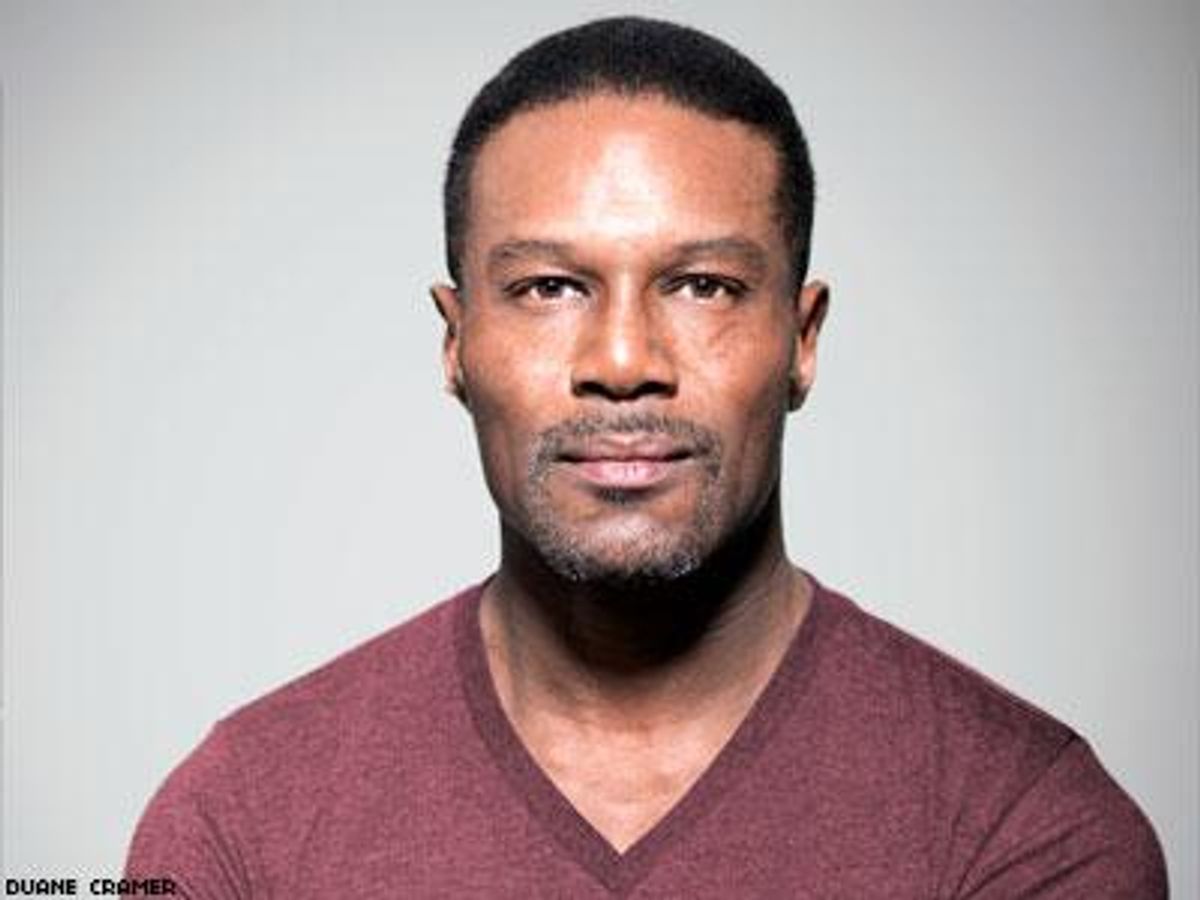
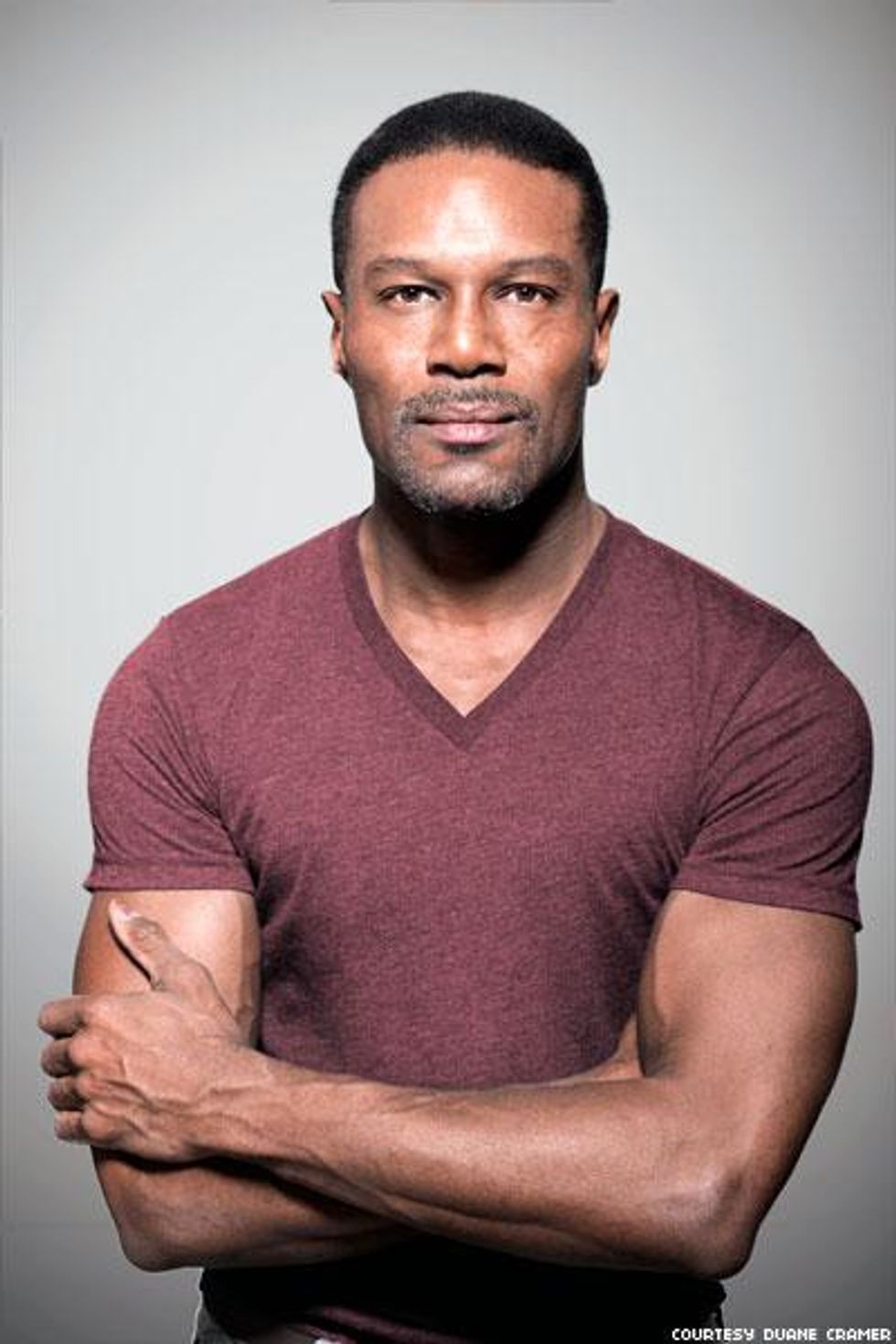 Long before he died, Duane Cramer’s father taped a note to the wall, which read, “Quond non est in libro, non est in mondo” (“What is not documented does not exist”). Joe J. Cramer was a trailblazer, a black Ph.D. in theoretical accounting who served as an associate dean at Howard University. He also died of AIDS complications in 1986, a shock to Cramer’s entire family.
Long before he died, Duane Cramer’s father taped a note to the wall, which read, “Quond non est in libro, non est in mondo” (“What is not documented does not exist”). Joe J. Cramer was a trailblazer, a black Ph.D. in theoretical accounting who served as an associate dean at Howard University. He also died of AIDS complications in 1986, a shock to Cramer’s entire family.





